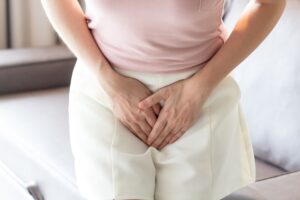 If you’ve ever experienced pain, burning, or other discomforts while urinating, you’ve had dysuria. It’s a condition that’s more common in women than men, and when men get it, they tend to be older rather than younger.
If you’ve ever experienced pain, burning, or other discomforts while urinating, you’ve had dysuria. It’s a condition that’s more common in women than men, and when men get it, they tend to be older rather than younger.
But why?
Advertisement
There can be many causes of dysuria. Pain, burning, or other discomforts can result from infections or issues that create inflammation or irritation in the urinary tract or genital area.
Urinary tract infections, or UTIs, are one of the most common causes and can occur in part of the urinary tract, including the kidneys, ureters (tubes that carry urine from the kidneys to the bladder), bladder, or urethra (the tube from the bladder that carries urine out of the body).
UTIs are typically caused by bacteria in the urinary tract through the urethra. Factors that increase the chances of getting one include:
• Being a woman
• Having diabetes
• Advanced age
• Enlarged prostate
• Kidney stones
• Catheters
Other potential indicators of a UTI include fever, foul/strong smelling urine, increased frequency or urge to go to the bathroom, pain in the side, or pain between the ribs and hip.
There is also a range of things that can cause inflammation and irritation that leads to dysuria. These can include:
• Kidney stones
• An irritated urethra from sexual activity
• Interstitial cystitis (feeling of pressure/pain in the bladder)
• Vaginal changes related to menopause
• Activities like cycling
• Douches, spermicides, scented soaps, bubble baths, or toilet paper may irritate the genital area and urethra.
If you’re experiencing pain when urinating, contacting your doctor for an appointment is a very good idea. Determining the cause will determine the proper treatment of the underlying condition.
For the immediate pain of dysuria, an OTC (over-the-counter) painkiller like ibuprofen may help. You can also try increasing water intake to dilute urine, making it easier to pass.
